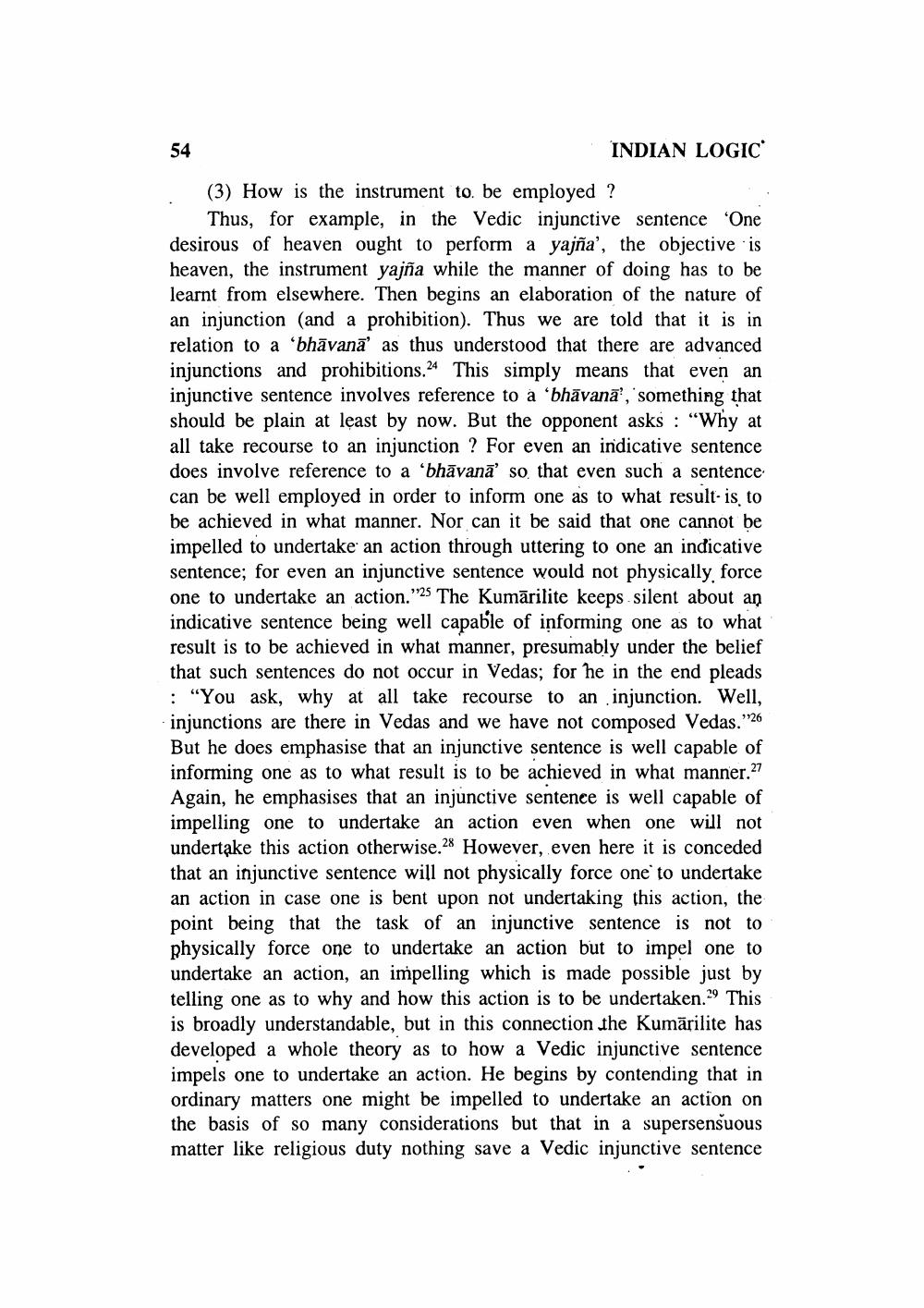________________
54
INDIAN LOGIC
(3) How is the instrument to be employed ?
Thus, for example, in the Vedic injunctive sentence 'One desirous of heaven ought to perform a yajña', the objective is heaven, the instrument yajña while the manner of doing has to be learnt from elsewhere. Then begins an elaboration of the nature of an injunction (and a prohibition). Thus we are told that it is in relation to a 'bhāvanā' as thus understood that there are advanced injunctions and prohibitions.24 This simply means that even an injunctive sentence involves reference to a 'bhāvanā, something that should be plain at least by now. But the opponent asks : "Why at all take recourse to an injunction ? For even an indicative sentence does involve reference to a 'bhāvanā' so that even such a sentence can be well employed in order to inform one as to what result is to be achieved in what manner. Nor can it be said that one cannot be impelled to undertake an action through uttering to one an indicative sentence; for even an injunctive sentence would not physically force one to undertake an action."25 The Kumārilite keeps - silent about an indicative sentence being well capable of informing one as to what result is to be achieved in what manner, presumably under the belief that such sentences do not occur in Vedas; for he in the end pleads : "You ask, why at all take recourse to an injunction. Well, injunctions are there in Vedas and we have not composed Vedas. "26 But he does emphasise that an injunctive sentence is well capable of informing one as to what result is to be achieved in what manner.27 Again, he emphasises that an injunctive sentence is well capable of impelling one to undertake an action even when one will not undertake this action otherwise.28 However, even here it is conceded that an injunctive sentence will not physically force one to undertake an action in case one is bent upon not undertaking this action, the point being that the task of an injunctive sentence is not to physically force one to undertake an action but to impel one to undertake an action, an impelling which is made possible just by telling one as to why and how this action is to be undertaken.This is broadly understandable, but in this connection the Kumärilite has developed a whole theory as to how a Vedic injunctive sentence impels one to undertake an action. He begins by contending that in ordinary matters one might be impelled to undertake an action on the basis of so many considerations but that in a supersensuous matter like religious duty nothing save a Vedic injunctive sentence




